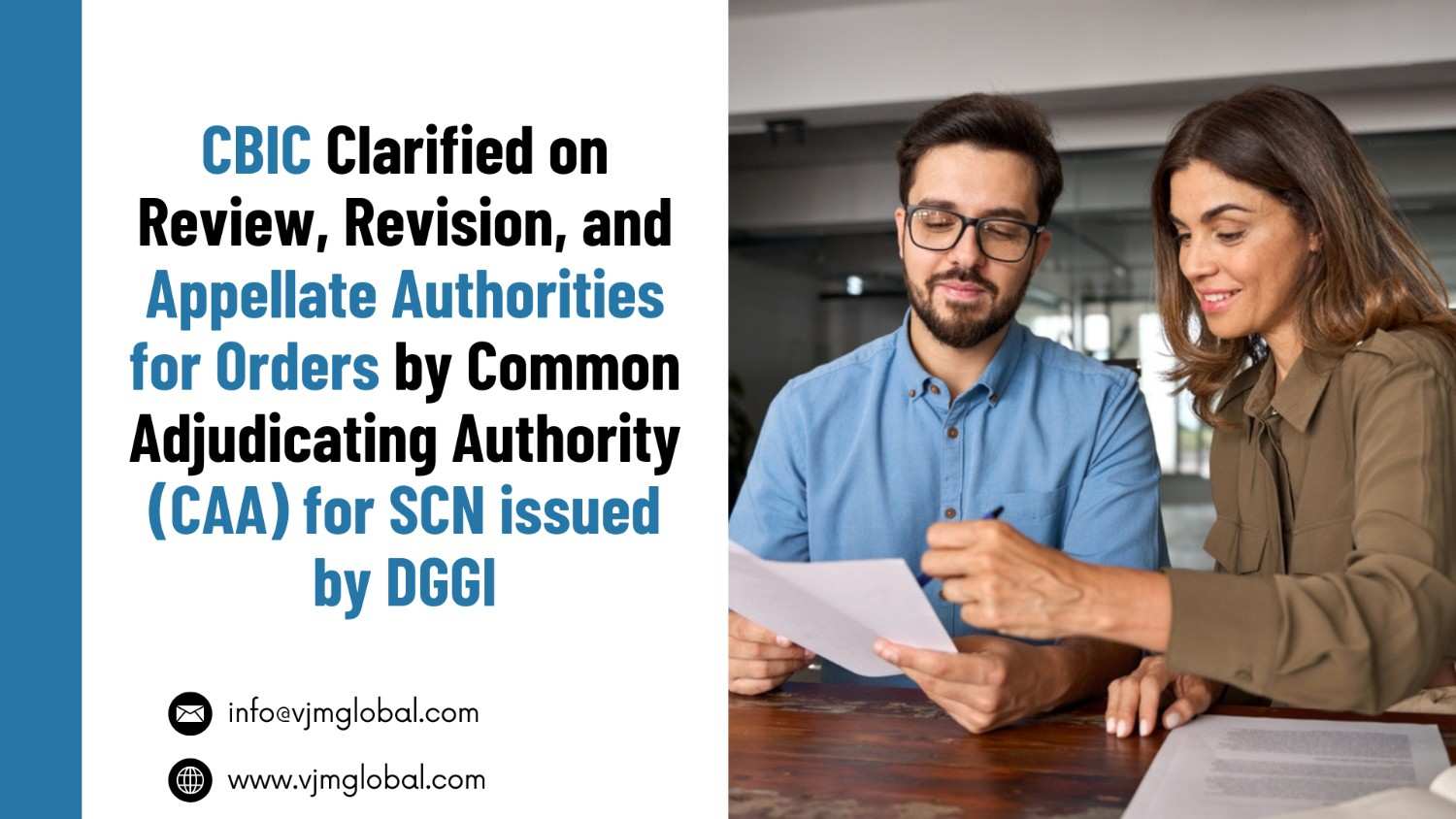
On 4th February, 2024, the Time limit for issuance of Order under Section 74 of the Central Goods and Service Tax, 2017 expired for F.Y. 2018-19. Demands were confirmed in various cases by the Common Adjudicating Authority (CAA) in line with power given by Notification No. 02/2017-Central Tax dated 19th June, 2017 (as amended by Notification No. 27/2024Central Tax dated 25th November, 2024).
However, considering the issues faced by the taxpayers in filing appeal or review or revision against demand order, the Central Board of Indirect Taxes and Customs (CBIC), under the Ministry of Finance, Government of India, issued Circular No. 250/07/2025-GST dated 24th June, 2025 clarifying Reviewing Authority, Revision Authority and Appellate Authority in respect of orders issued by Common Adjudication Authority (“CAA”) for show cause notice issued by DGGI.
This circular explains the process for reviewing, revising, and appealing orders issued by the Common Adjudicating Authority (CAA).
The circular provides a structured framework for handling O-I-Os issued by CAAs, who are typically Additional or Joint Commissioners. Below are the key clarifications:
The Principal Commissioner or Commissioner of Central Tax under whom the CAA (Additional/ Joint Commissioner) is posted shall be the reviewing authority of such O-I-O.
The same Principal Commissioner or Commissioner can revise the CAA’s orders if needed, as per Section 108 of the CGST Act and Notification No. 05/2020 (January 13, 2020). This provision allows for the revision of orders to correct errors or ensure compliance with legal standards.
Appeals against the order of CAA shall lie before the Commissioner (Appeals) corresponding to the territorial jurisdiction of the Principal Commissioner or the Commissioner of Central Tax, under whom the said CAA is posted, as specified in Table III of notification No. 02/2017 Central Tax dated 19th June, 2017.
Read Also: GSTN Issued Advisory on Handling of Inadvertently Rejected Records on IMS
The Principal Commissioner or Commissioner of Central Tax of such Commissionerate under whom the CAA is posted shall represent the department in appeal proceedings against the O-I-Os passed by such CAA and accordingly may appoint any officer subordinate to him to be the designated officer for filing departmental appeals.
The reviewing or revisional authority for such orders may seek comments on the O-I-O from the concerned DGGI formation before proceeding to decide on the order passed by the CAA.
This circular makes things clearer for taxpayers, GST officers, and legal experts. It explains who to approach for reviews, revisions, or appeals, so there’s no confusion. Taxpayers know their rights, and GST officers have a standard process to follow. Asking for DGGI’s input ensures better decisions, and having a clear appeal process helps resolve disputes fairly.
Circular No. 250/07/2025-GST is a pivotal step toward streamlining the adjudication process under the CGST Act, 2017. By clarifying the roles of reviewing, revisional, and appellate authorities for CAA orders, the CBIC has addressed a critical gap in the GST framework. This move not only enhances procedural clarity but also reinforces the principles of fairness and accountability in GST administration. Taxpayers and authorities alike are encouraged to familiarize themselves with these guidelines to ensure compliance and effective dispute resolution.
Further clarification is also required on the mode of filing appeals, particularly regarding the use of the GSTN portal versus manual filing. Also, CBIC needs to clarify whether a single consolidated appeal can be filed for multiple GSTINs covered by a common order, and the appropriation of ad-hoc payments made during DGGI investigations towards the mandatory pre-deposit would support effective compliance and smooth implementation of the new procedures.
